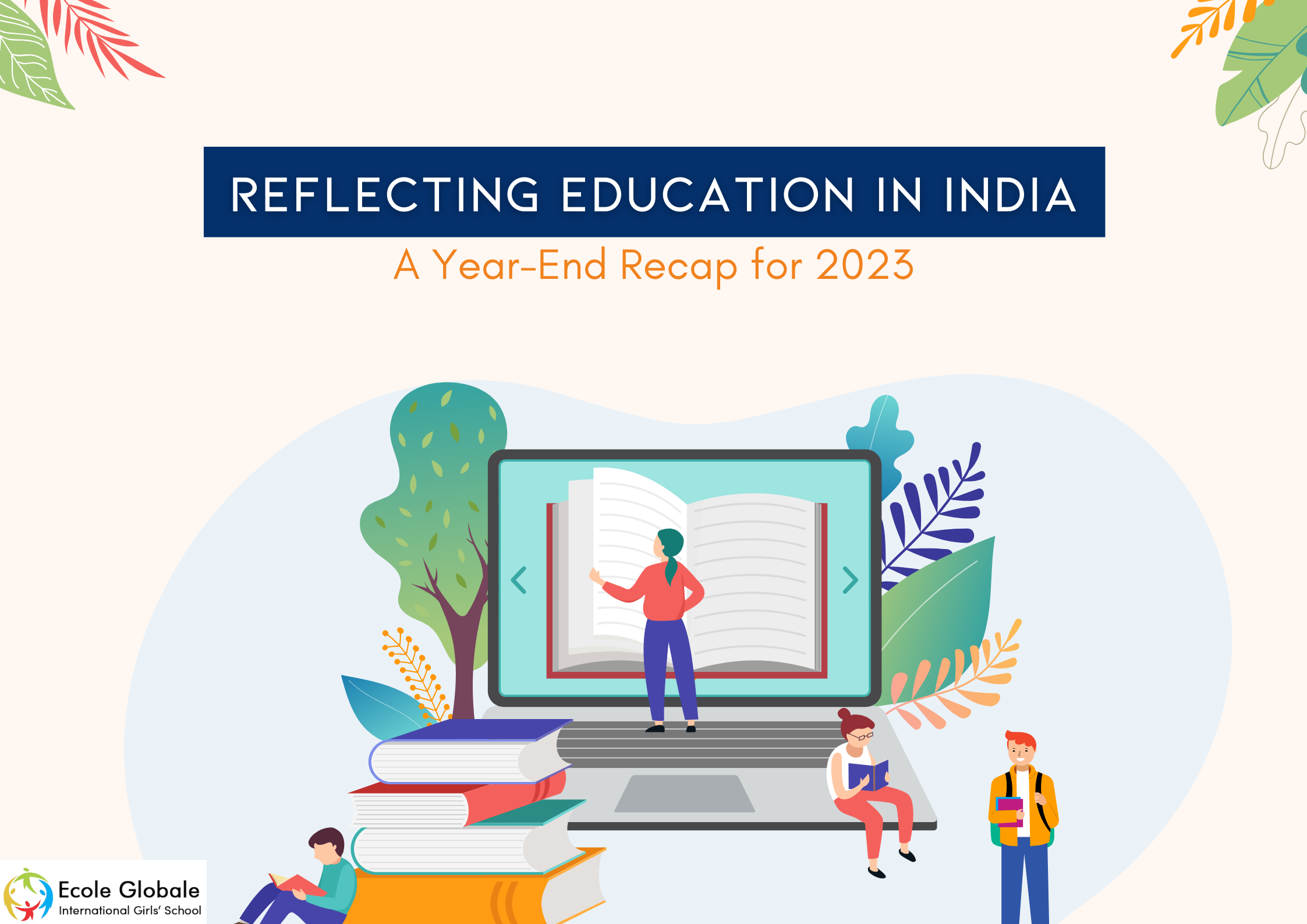The year 2023 marked a significant turning point in the landscape of Education in India, characterized by substantial progress and enduring challenges. This period was notably defined by the continued implementation of the National Education Policy (NEP) 2020, which introduced transformative changes in the educational system.
Comprehensive Implementation of NEP 2020

The NEP 2020’s bold reforms were progressively rolled out across various states, introducing innovative educational strategies. These included multiple entry and exit options in higher education, flexible credit systems, and the introduction of multidisciplinary courses. A key development in this regard was the launch of the Common Universities Entrance Test (CUET), aimed at standardizing the college admission process across the country. This move was intended to create a more equitable and transparent system for students seeking higher Education in India.
Embracing Local Languages in Education

In line with NEP’s emphasis on mother tongue education in India, several states, including Karnataka and Tamil Nadu, made significant strides by introducing engineering and medical courses in local languages.
This initiative was aimed at promoting inclusivity and making education in India more accessible to students from diverse linguistic backgrounds. The move was also seen as a step towards preserving and valuing local cultures and languages, which are integral to India’s rich cultural heritage.
Addressing the Digital Divide

The COVID-19 pandemic brought to light the stark digital divide in the realm of education in India. In response, the government launched various initiatives such as PM eVIDYA and DIKSHA. These programs were designed to provide online learning resources and enhance digital infrastructure, thereby bridging the gap between students with varying levels of access to technology.
This was a crucial step in ensuring continuity of education in India during the pandemic and beyond, especially for students in remote and rural areas.
Skilling and Upskilling: Preparing for the Future

Recognizing the importance of a skilled workforce in the rapidly evolving global economy, the government placed a strong emphasis on skilling and upskilling initiatives. Programs like the National Skill Development Mission (NSDM) and Pradhan Mantri Kaushal Vikas Yojana (PMKVY) played a pivotal role in providing skill training to millions of individuals.
These initiatives aimed to equip the youth with the necessary skills to meet the demands of various industries and foster an environment of job readiness and entrepreneurship.
Fostering Research and Innovation

The government’s focus on research and innovation was evident through the launch of initiatives like the National Research Foundation (NRF) and the Innovation Cell at the All India Council for Technical Education (AICTE). These programs were designed to cultivate a culture of research and innovation within the education sector, encouraging students and educators to engage in creative and critical thinking.
This focus is crucial for India to emerge as a global leader in research and innovation, contributing significantly to the world of academia and industry.
Persistent Challenges and the Road Ahead

Despite these advancements, the Indian education system continues to face several challenges. The learning gap exacerbated by the pandemic remains a significant concern, particularly affecting students from disadvantaged backgrounds. There is a pressing need for enhanced teacher training and capacity building to ensure the effective implementation of the NEP.
Issues such as gender disparity in education in India, access to quality education in rural areas, and the need for increased investment in the education sector are critical areas that require attention. Addressing these challenges is essential for achieving the vision of an equitable and inclusive education system.
As we look towards 2024, the sector of education in India is at a crucial crossroads. The ongoing implementation of the NEP, coupled with the need to address existing challenges, sets the stage for a transformative period in education in India. Embracing emerging trends like digital learning, personalized education, and a focus on mental health and well-being will be key factors in shaping the future of education in India.
The emphasis on holistic education, which includes not just academic learning but also the development of emotional, social, and ethical competencies, is increasingly being recognized as vital for the overall development of students. Programs and policies that support mental health, encourage sports and physical education in India, and foster artistic and cultural pursuits are becoming integral parts of the educational framework.
Conclusion
The year 2023 has been a year of both progress and reflection for the Indian education system. The steps taken towards implementing the NEP and addressing the digital divide have laid a strong foundation for future growth. However, the challenges that remain call for continued effort and innovation.
The focus for the coming years will be on creating an education system that is not only academically robust but also inclusive, equitable, and responsive to the needs of every student, preparing them to be responsible, capable, and compassionate global citizens.









